Podcast: Play in new window | Download (Duration: 37:34 — 25.8MB) | Embed
Subscribe: Apple Podcasts | Spotify | Amazon Music | Android | Pandora | iHeartRadio | JioSaavn | Podchaser | Gaana | Podcast Index | Email | TuneIn | Deezer | Anghami | RSS | More

Thanksgiving: Cultivating a Spirit of Gratitude – Building a Kingdom of Love with Msgr. John Esseff
Msgr. Esseff reflects on the centrality of gratitude in the spiritual life on Thanksgiving (in the United States), using the Gospel of Luke’s story of the ten lepers and the one Samaritan leper who returned to thank Jesus. This act of gratitude not only healed him physically but also brought him into a saving relationship with Christ. True Thanksgiving is not just about material blessings or familial gatherings but about cultivating a relationship with God that transforms our relationships with others, even amidst family tensions or personal wounds.
Gratitude can resolve brokenness within families and communities, especially during the Thanksgiving holiday. There are challenges that arise in family gatherings but a heart centered on Christ allows us to love and forgive, despite past grievances. Gratitude is foundational to building a life of joy and love, as it leads to a deeper awareness of God’s presence in all circumstances.
Discerning Hearts Reflection Questions
- Gratitude as a Foundation: How does recognizing all you have as gifts from God influence your approach to prayer and service?
- Healing Through Thanksgiving: In what ways can gratitude deepen your relationship with Jesus, as seen in the Samaritan leper’s story?
- Relationships and Brokenness: How can a spirit of gratitude help you address tensions or unresolved conflicts within your family during gatherings?
- Joy and Peace in Christ: How does gratitude lead to joy and peace, even in challenging circumstances or strained relationships?
- Faith and Awareness: How does faith help you become more aware of God’s gifts, and how can this awareness shape your daily actions?
- Unity in Diversity: How does the Gospel call to gratitude challenge you to embrace love and unity across differences in faith, culture, or relationships?
- Thanksgiving and Mission: How can you extend the spirit of Thanksgiving to include those outside your family or community, reflecting Christ’s love?
- Gratitude in Worship: How does participating in the Eucharist deepen your sense of gratitude and your relationship with God and others?
- Challenges to Gratitude: What attitudes or vices might be obstacles to gratitude in your life, and how can you overcome them with God’s grace?
- Living the Spirit of Thanksgiving: How can you carry the spirit of Thanksgiving into your everyday life, cultivating joy, peace, and love in all that you do?
Reading 1 SIR 50:22-24
“And now, bless the God of all,
who has done wondrous things on earth;
Who fosters people’s growth from their mother’s womb,
and fashions them according to his will!
May he grant you joy of heart
and may peace abide among you;
May his goodness toward us endure in Israel
to deliver us in our days
Gospel LK 17:11-19
he traveled through Samaria and Galilee.
As he was entering a village, ten persons with leprosy met him.
They stood at a distance from him and raised their voices, saying,
“Jesus, Master! Have pity on us!”
And when he saw them, he said,
“Go show yourselves to the priests.”
As they were going they were cleansed.
And one of them, realizing he had been healed,
returned, glorifying God in a loud voice;
and he fell at the feet of Jesus and thanked him.
He was a Samaritan.
Jesus said in reply,
“Ten were cleansed, were they not?
Where are the other nine?
Has none but this foreigner returned to give thanks to God?”
Then he said to him, “Stand up and go;
your faith has saved you.”
Msgr. John A. Esseff is a Roman Catholic priest in the Diocese of Scranton. Msgr. Esseff served as a retreat director and confessor to St. Teresa of Calcutta. He continues to offer direction and retreats for the sisters of the Missionaries of Charity around the world. Msgr. Esseff encountered St. Padre Pio, who would become a spiritual father to him. He has lived in areas around the world, serving in the Pontifical missions, a Catholic organization established by Pope St. John Paul II to bring the Good News to the world, especially to the poor. Msgr. Esseff assisted the founders of the Institute for Priestly Formation and continues to serve as a spiritual director for the Institute. He continues to serve as a retreat leader and director to bishops, priests and sisters and seminarians, and other religious leaders around the world.

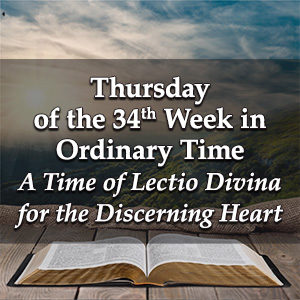 Thursday of the Thirty-Fourth Week in Ordinary Time – A Time of Lectio Divina for the Discerning Heart Podcast
Thursday of the Thirty-Fourth Week in Ordinary Time – A Time of Lectio Divina for the Discerning Heart Podcast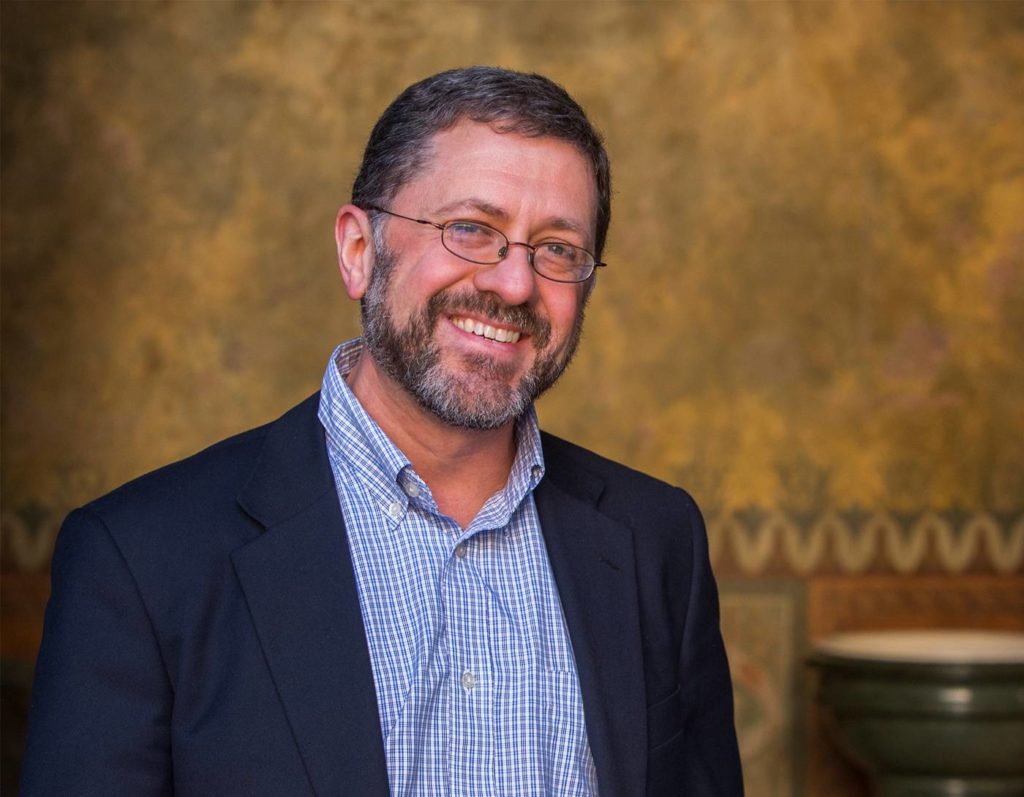 Episode 5 – Nero – Villains of the Early Church with Mike Aquilina
Episode 5 – Nero – Villains of the Early Church with Mike Aquilina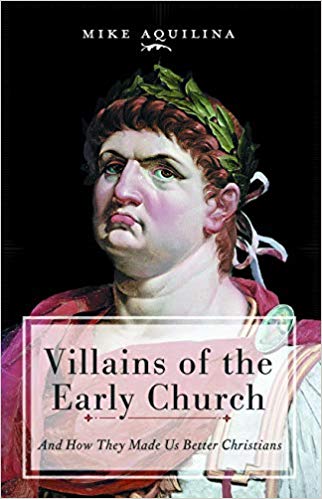
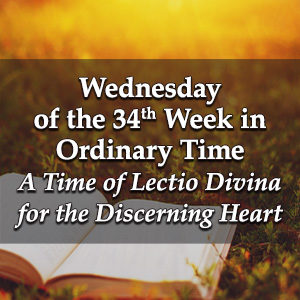 Wednesday of the Thirty-Fourth Week in Ordinary Time – A Time of Lectio Divina for the Discerning Heart Podcast
Wednesday of the Thirty-Fourth Week in Ordinary Time – A Time of Lectio Divina for the Discerning Heart Podcast
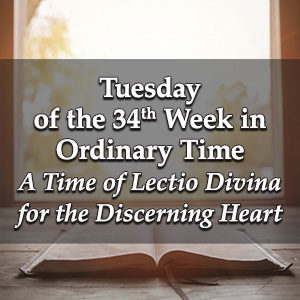 Tuesday of the Thirty-Fourth Week in Ordinary Time – A Time of Lectio Divina for the Discerning Heart Podcast
Tuesday of the Thirty-Fourth Week in Ordinary Time – A Time of Lectio Divina for the Discerning Heart Podcast Listening for God’s Voice – “What am I to do?” The Discernment of God’s Will in Everyday Decisions with Fr. Timothy Gallagher
Listening for God’s Voice – “What am I to do?” The Discernment of God’s Will in Everyday Decisions with Fr. Timothy Gallagher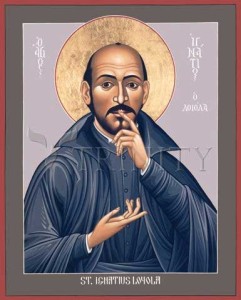 Discerning Hearts Reflection Questions:
Discerning Hearts Reflection Questions: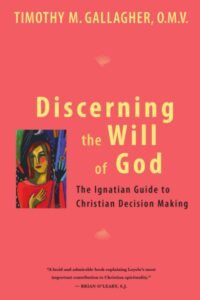
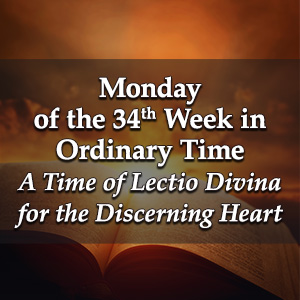 Monday of the Thirty-Fourth Week in Ordinary Time – A Time of Lectio Divina for the Discerning Heart Podcast
Monday of the Thirty-Fourth Week in Ordinary Time – A Time of Lectio Divina for the Discerning Heart Podcast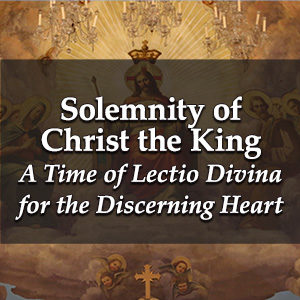 Solemnity of Christ the King – A Time of Lectio Divina for the Discerning Heart Podcast
Solemnity of Christ the King – A Time of Lectio Divina for the Discerning Heart Podcast